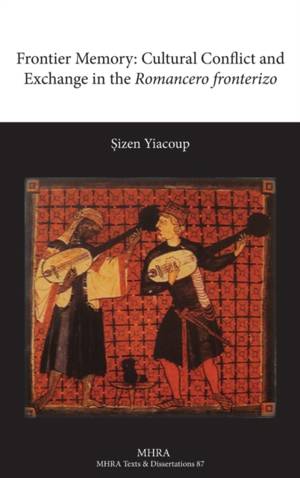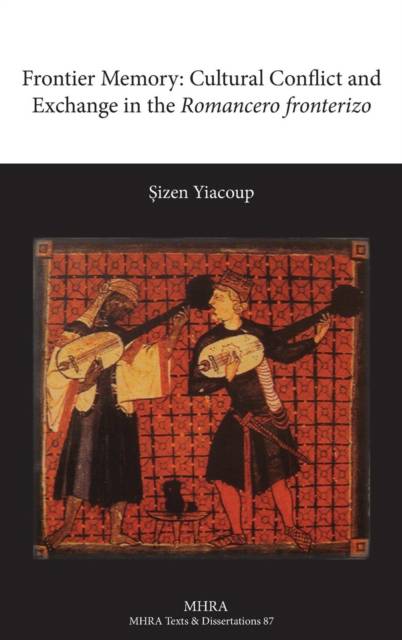
- Afhalen na 1 uur in een winkel met voorraad
- Gratis thuislevering in België vanaf € 30
- Ruim aanbod met 7 miljoen producten
- Afhalen na 1 uur in een winkel met voorraad
- Gratis thuislevering in België vanaf € 30
- Ruim aanbod met 7 miljoen producten
Zoeken
Frontier Memory
Cultural Conflict and Exchange in the Romancero Fronterizo
Sizen Yiacoup, Osizen Yiacoup
€ 66,45
+ 132 punten
Uitvoering
Omschrijving
Scholarship on the late medieval and early modern Castilian frontier ballad has tended to fall into two distinct categories: analyses which promote a view of the fronterizo corpus as an instrument of anti-Muslim, nationalist ideology in the service of the Christian Reconquest, or interpretations which favour the perception of the poems as idealizing and distinctly Islamophile in their representations of Granadan Muslims. In this study, Şizen Yiacoup offers ideological readings of the romances fronterizos that take into consideration yet look beyond expressions of cross-cultural hostility or sympathy in order to assess the ways in which the poems recall a process of cultural exchange between Christians and Muslims. An understanding of the relationship between the ballads, their original social setting, and the setting in which they achieved their greatest popularity provides the framework for this interpretation of the poems' shifting cultural connotations. Accordingly, Yiacoup traces the evolution of their historical and cultural significance as they moved from their origins in the fourteenth and fifteenth centuries, when a Castilian frontier with Islamic Granada was still a reality, into the sixteenth, when this boundary vanished as part of the larger realignment of cultural, territorial and political frontiers of the new 'Spanish' empire.
Specificaties
Betrokkenen
- Auteur(s):
- Uitgeverij:
Inhoud
- Aantal bladzijden:
- 168
- Taal:
- Engels
- Reeks:
Eigenschappen
- Productcode (EAN):
- 9781907322914
- Verschijningsdatum:
- 7/10/2013
- Uitvoering:
- Hardcover
- Formaat:
- Genaaid
- Afmetingen:
- 156 mm x 234 mm
- Gewicht:
- 412 g

Alleen bij Standaard Boekhandel
+ 132 punten op je klantenkaart van Standaard Boekhandel
Beoordelingen
We publiceren alleen reviews die voldoen aan de voorwaarden voor reviews. Bekijk onze voorwaarden voor reviews.











